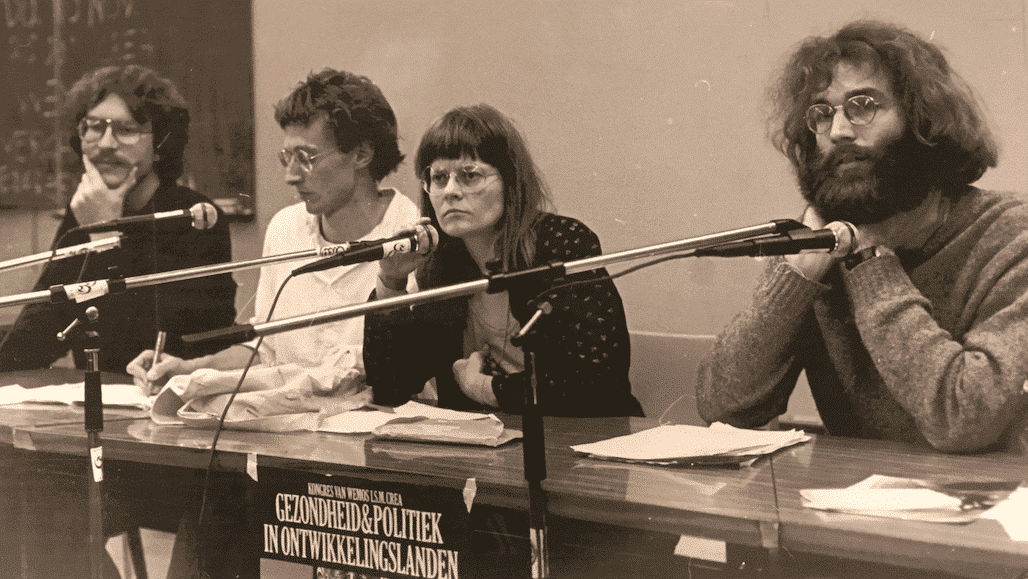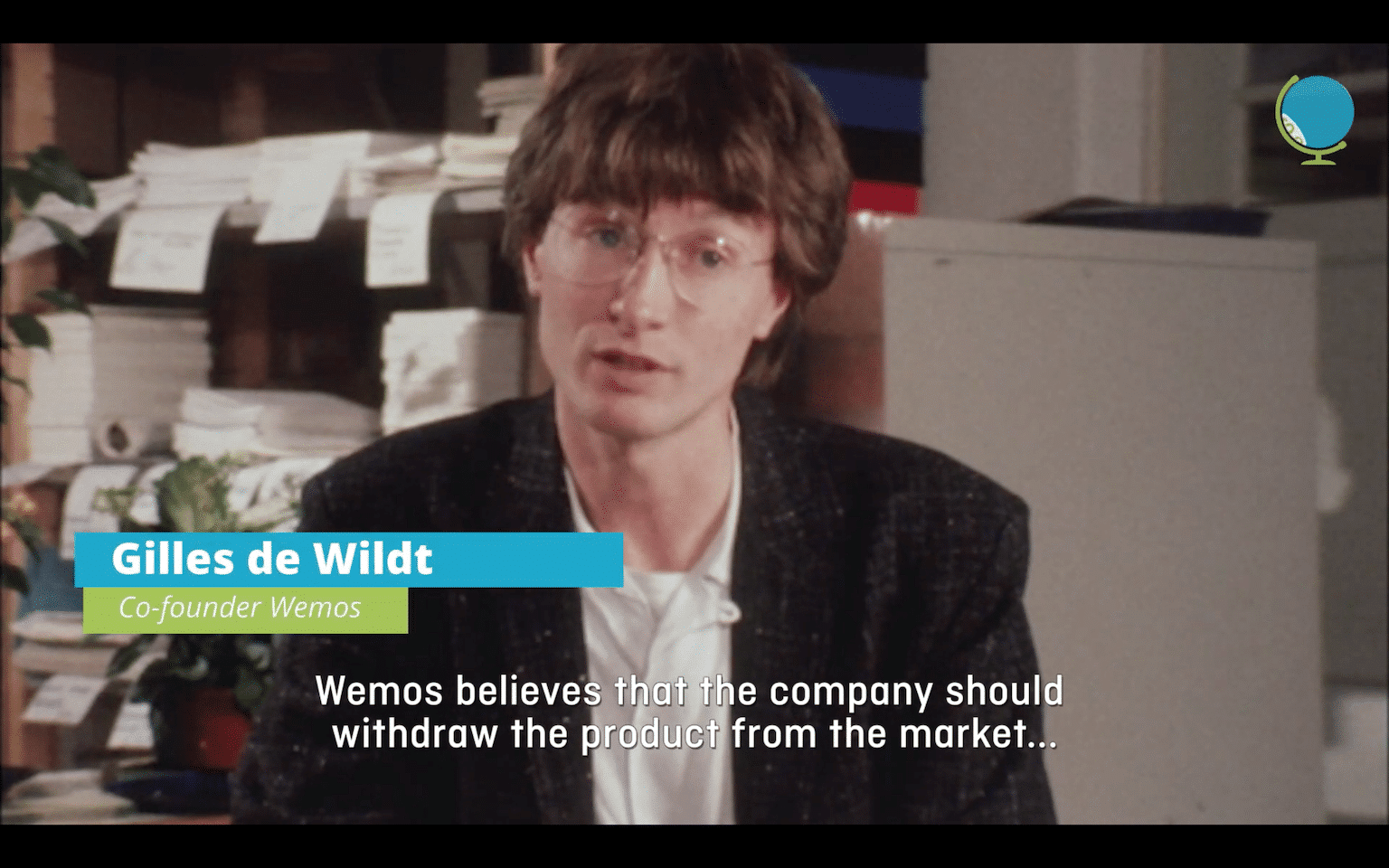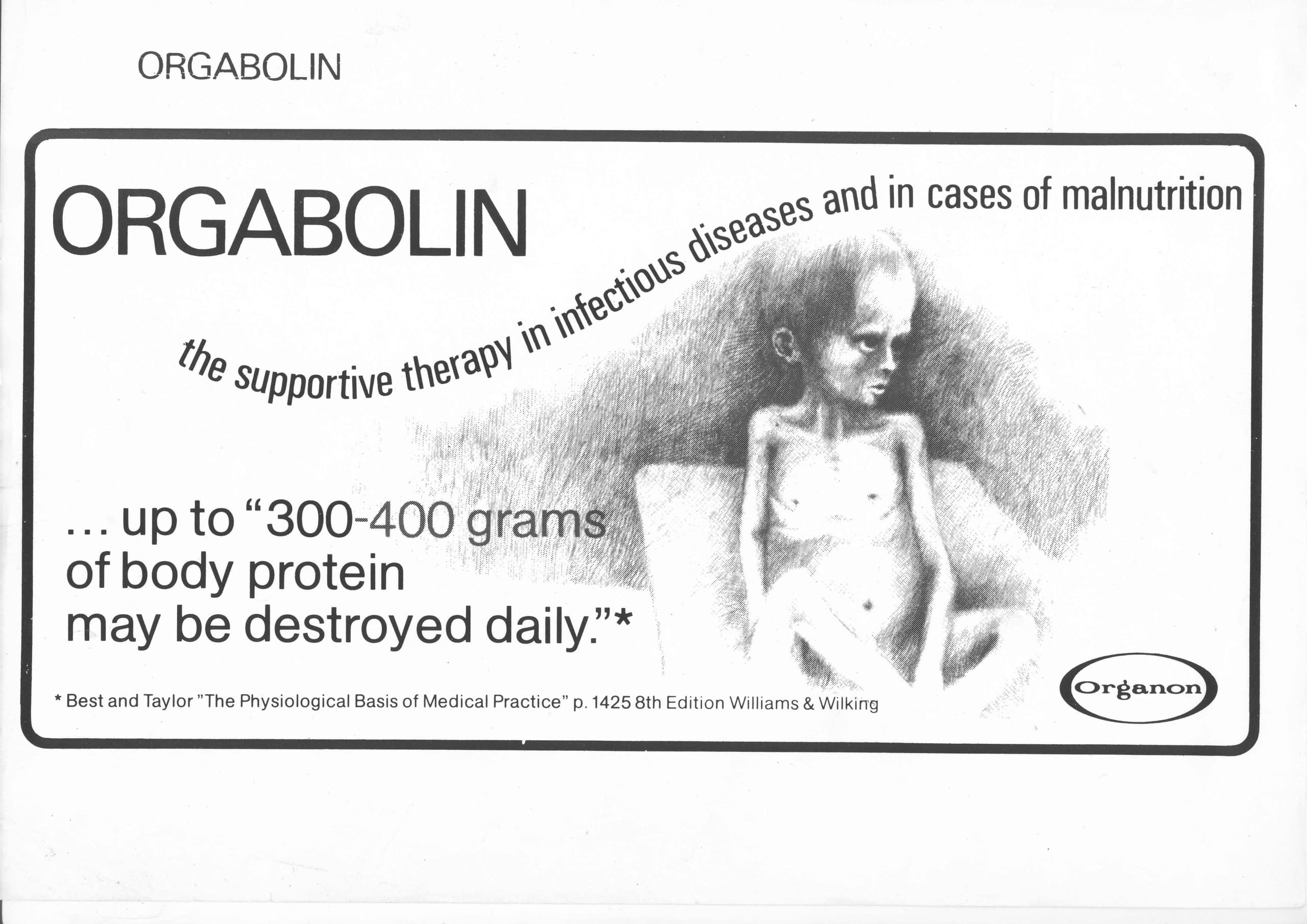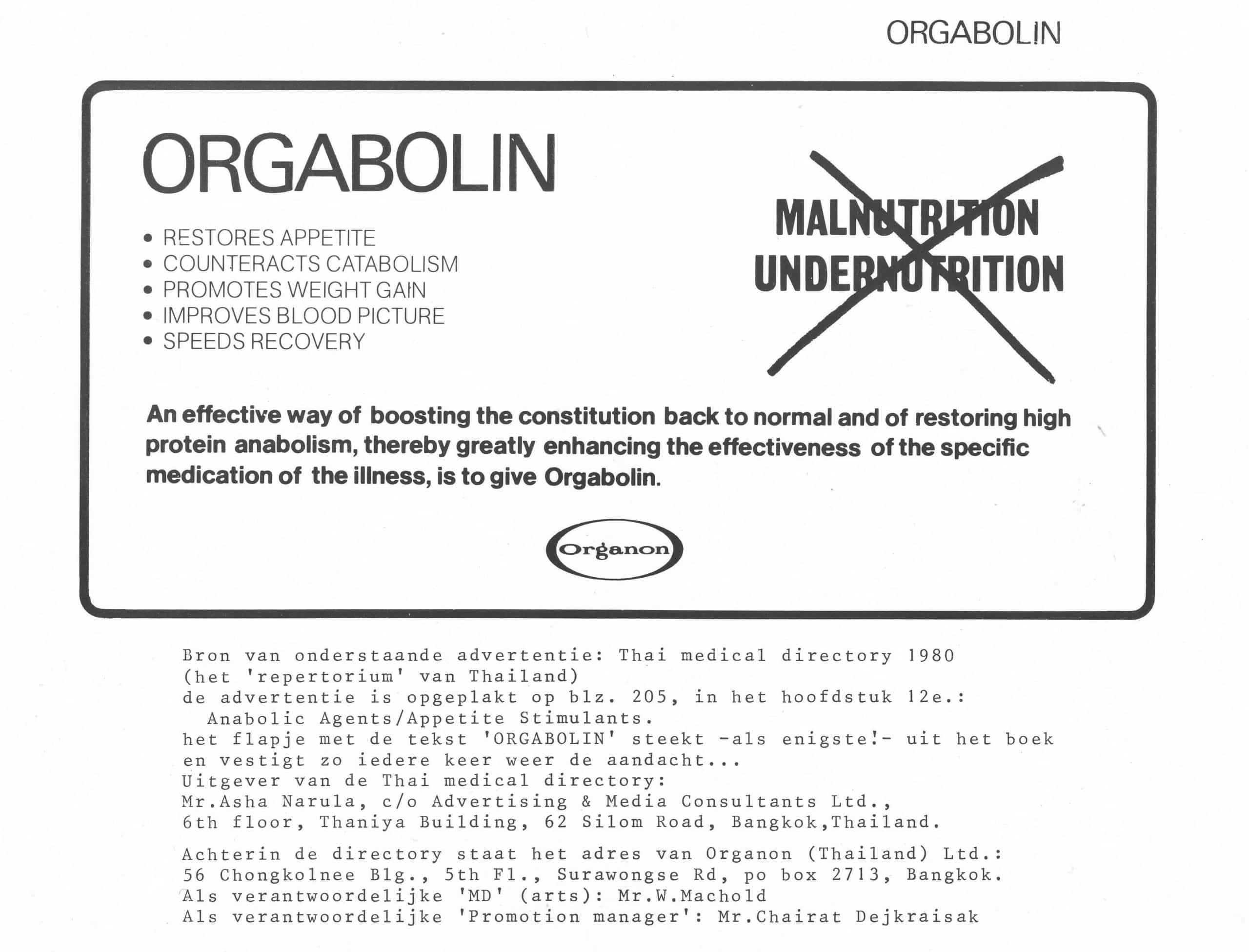The House of Representatives overwhelmingly adopted a motion in 1984: development funds could only be used to finance ‘essential medicines’. At the end of the 1980s, Wemos changed its policy and focused on ‘information and lobbying in the fields of health, politics and the Third World’. Wemos sold books and publications that were not available elsewhere and lent out videos and slide shows. It also published the ‘WEMOS bulletin: tijdschrift voor Medische Ontwikkelingssamenwerking’ (WEMOS bulletin: journal for Medical Development Cooperation), the only Dutch-language journal that covered healthcare in low- and middle-income countries (then referred to as ‘the Third World’) from a broad perspective. It had a print run of 800 copies, 650 of which were sent to regular subscribers.
Developments in the 1990s
New North-South contradictions demanded a revised mission in the early 1990s. Among other things, Wemos focused on equal access to healthcare globally and raising awareness in the North of health impacts for people in the South. Wemos also stimulated the critical discussion on medical development cooperation and advocacy with regard to governments, private organisations and industry in the North. The lobbying activities moved more towards the European level.
A few highlights from this period
- 1993: together with sister organisations from the International Baby Food Action Network (IBFAN), Wemos implemented an advertising ban on bottle feeding in the Netherlands and Luxembourg.
- 1996: Wemos coordinated ‘Towards a Better Quality of Drug Donations’, an awareness campaign about drug donations to low-income countries. As a result, more Dutch doctors stopped donating harmful medicines and instead followed the guidelines of the World Health Organisation (WHO).
- 1997: the Ministry of Foreign Affairs adopted the Guidelines for Drug Donations and the Dutch government implemented the ‘International Code of Marketing of Breastmilk Substitutes.’
- 1998: the 50th World Medical Health Assembly unanimously adopted the ‘Improved Investment in Healthcare’ resolution, drawn up by Wemos in collaboration with the Royal Tropical Institute (KIT).
Wemos in the 21st century
Around the turn of the century, the focus shifted to new themes:
- Healthy trade
- Health in national strategies for poverty reduction
- Financing for health
Wemos worked on these themes by carrying out lobbying, conducting campaigns, and seeking collaboration with organizations from low- and middle-income countries.
Some of the successes in these years
- 2000: Wemos and the Evert Vermeer Foundation organised a political debate on the recruitment of nurses from the Philippines and South Africa. As a result, the Dutch parliament rejected international recruitment on ethical grounds by a majority.
- 2002: the UN Conference on Ageing included a number of Wemos’ proposals in its ‘International Action Plan on Ageing’, including the gender approach and the importance of mental health.
- 2009: Bolivia incorporated the right to health into its constitution thanks to the joint lobbying of Accion Internacional por la Salud and Wemos.
- 2009: thanks to our lobbying, the European Medicines Agency (EMA) announced better monitoring of compliance with ethical guidelines in clinical trials on subjects outside Europe.
Repositioning from 2010 onwards: ‘Health for All’ advocate
In 2010, Wemos repositioned itself as an advocate of global health. Its main task was to influence policies to promote public health. As a result, it moved away from supporting partner organizations and conducting public campaigns. International networks became more important to our work, initially as sources of information and later as lobbying partners. We mainly focused on the Dutch government, the European Union, the World Trade Organization (WTO), the WHO, the World Bank and the International Monetary Fund (IMF).
- 2012: the EMA published guidelines for the ethical testing of drug trials. These highlighted the substantive lobbying points deployed by Wemos in recent years.
- 2013-2016: during this period, we issued research reports on unethical abuses in clinical trials in India, Kenya, South Africa, Egypt and Zimbabwe. Thanks to our lobbying and our contribution to a report about the EMA, the EMA is now required to report annually on actions it takes to ensure that medicines from low- and middle-income countries that enter the EU market have been ethically tested.
- 2015: following lobbying by Wemos, the European Commission conducted research into the added therapeutic value of new medicines.
- 2015: the House of Representatives adopted a motion for research into possible measures against endocrine-disrupting substances and information for pregnant women on this subject.
- 2016: in early 2016, the Health Systems Advocacy (HSA) Partnership was established, a strategic partnership in which Wemos joined forces with Amref Flying Doctors, the African Centre for Global Health and Social Transformation (Achest), Health Action International (HAI) and the Ministry of Foreign Affairs (financing partner). The partnership focuses on strengthening healthcare systems to improve sexual and reproductive health and rights in Kenya, Malawi, Uganda, Tanzania and Zambia.
- 2016: together with partner organisations from the Health Workers 4 All project, Wemos made policy recommendations for sustainable policies for healthcare personnel, such as tackling the shortage of health workers in Europe. These recommendations were included in the WHO report Joint Action Plan on Health Workforce Planning & Forecasting.
Celebrating 40 years of Wemos
On March 19th 2019, we celebrated the 40th anniversary of the first Wemos meeting. On September 6th 2019, we celebrated this anniversary at our congress ‘Global health: everybody’s concern, everybody’s business’. Have a look at this article for a summary.
Present
Read about the latest news and highlights on our News or have a look at our Publication.





